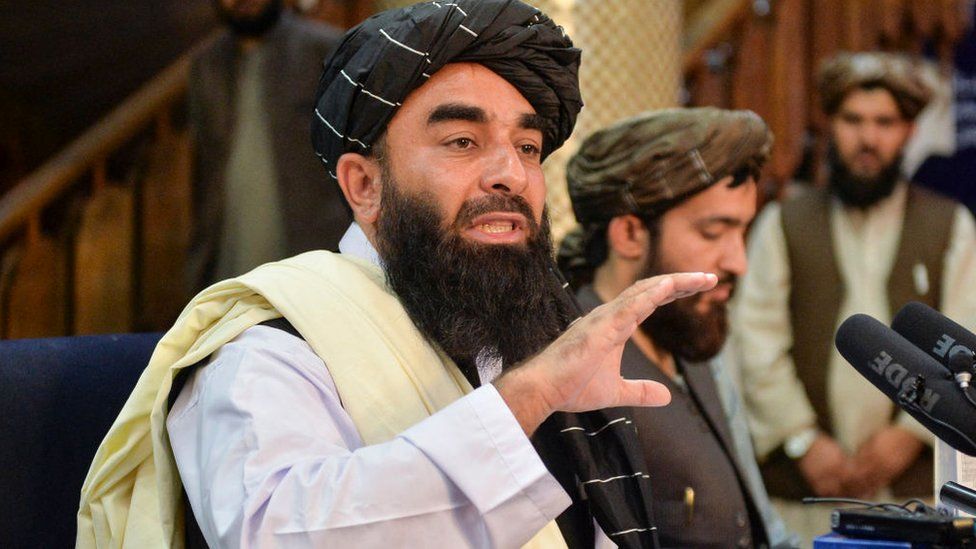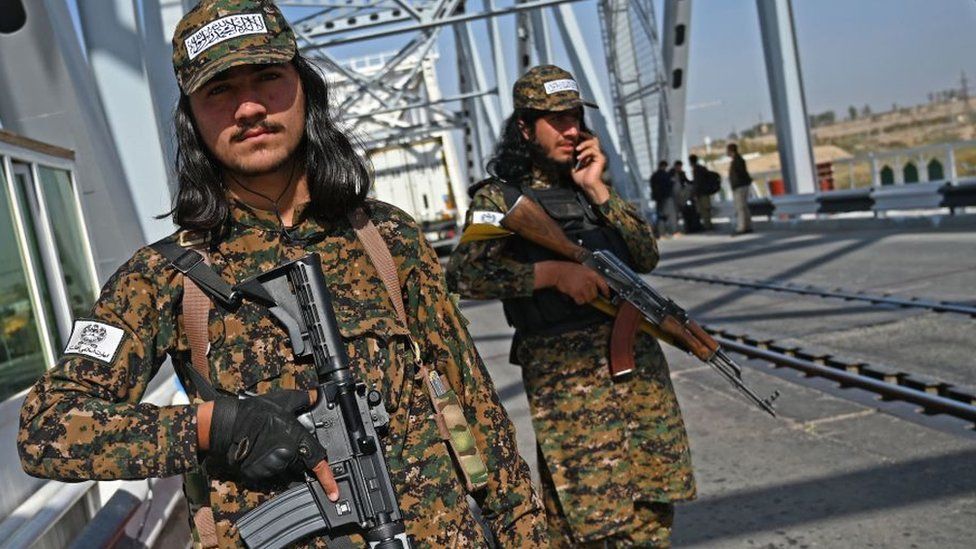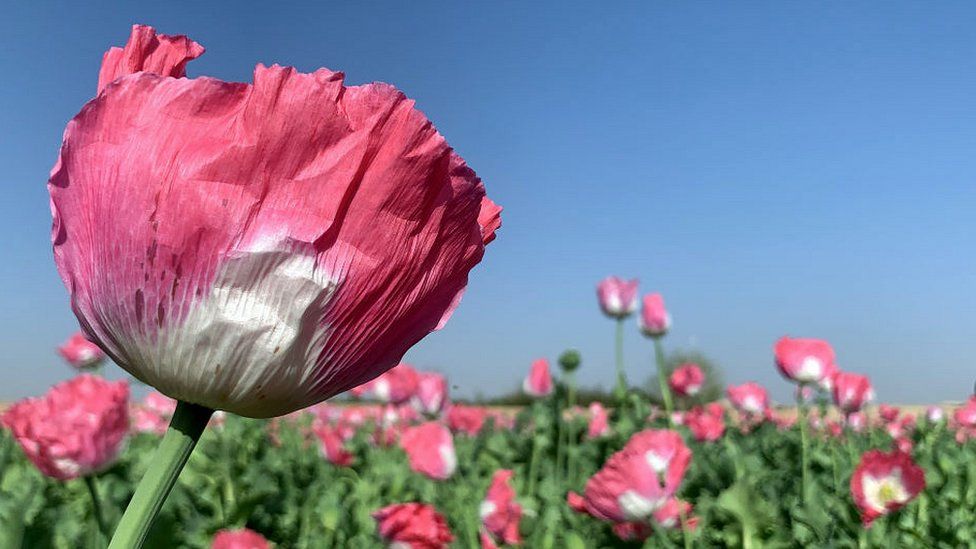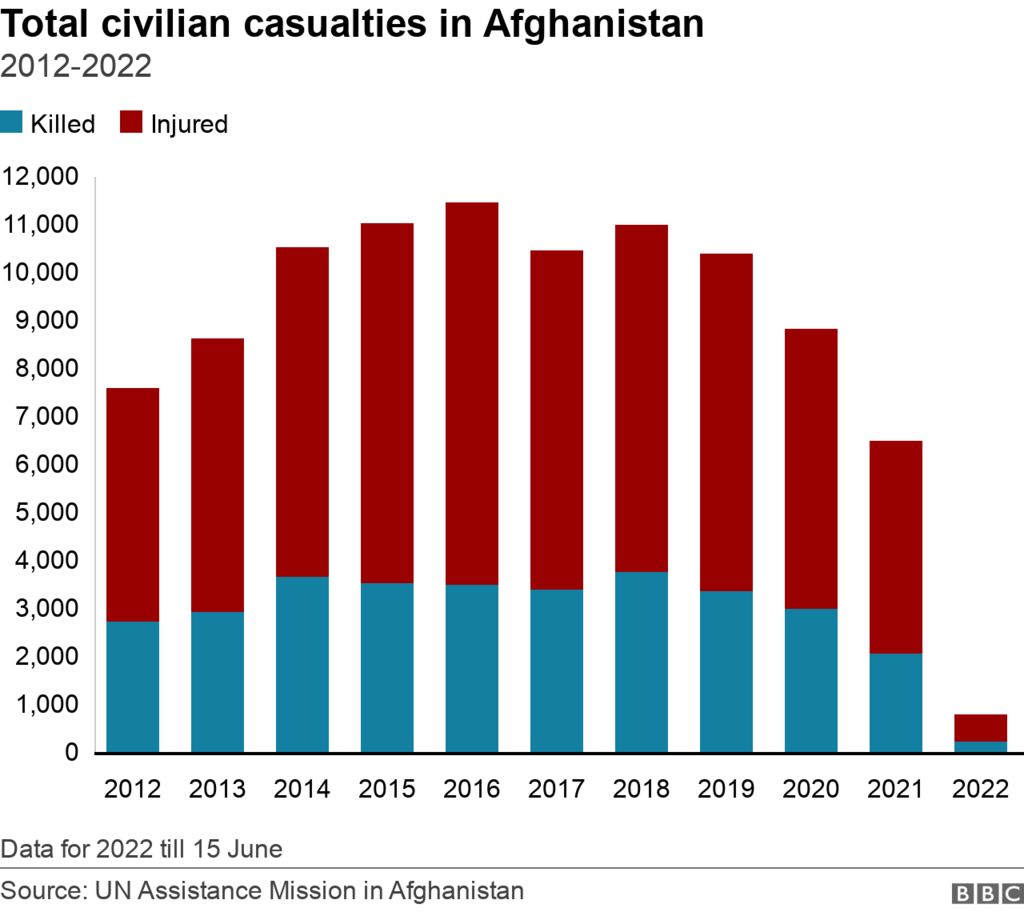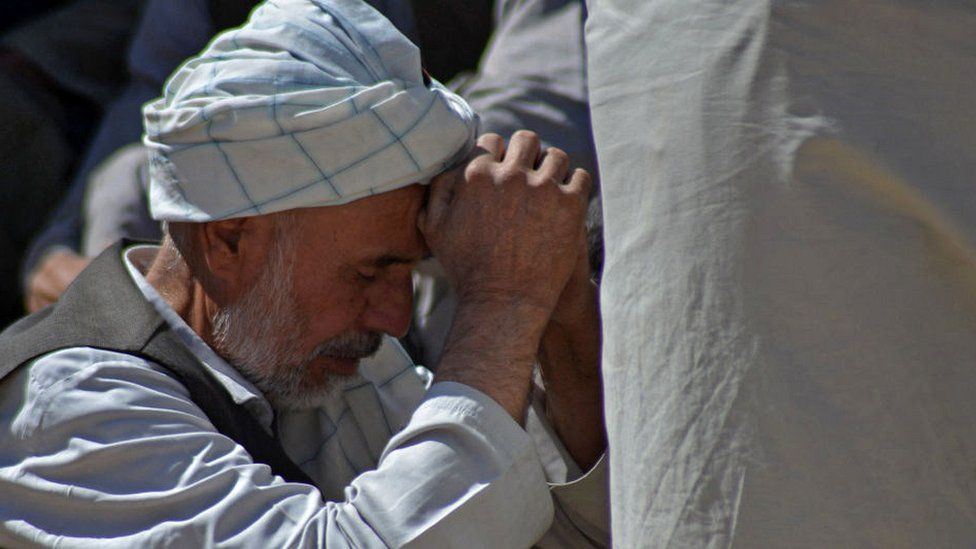BBC News 15 August 2022 - by Shruti Menon
One year ago, the Taliban swept into the Afghan capital Kabul, as foreign forces hastily completed their withdrawal.
Speaking for the Taliban at the time, Zabihullah Mujahid made a number of pledges for the new government.
'We are going to allow women to work and study.... women are going to be very active, but within the framework of Islam.'
The previous Taliban regime, in the 1990s, severely curtailed women's freedom - and since the takeover of power by the Taliban last year, a series of restrictions have been re-imposed on women in Afghanistan.
Regulations on clothing and laws forbidding access to public areas without a male guardian have been enforced.
In March, schools re-opened for a new academic year, but the Taliban reversed an earlier promise and girls are currently not permitted to attend secondary school.
The Taliban has blamed a lack of female teachers and the need to arrange the segregation of facilities.
This has affected an estimated 1.1 million pupils, according to the UN and has provoked widespread international criticism.
Primary school education for girls has been permitted.
Some public universities reopened for both men and women in February.
But women's participation in the labour force has dropped since the Taliban takeover last summer, according to the World Bank.
Female participation in the labour force had increased from 15% to 22% in just over a decade, between 1998 and 2019.
However, with the Taliban imposing more restrictions on women's movements outside the home since their return to power, the percentage of females working in Afghanistan shrank to 15% in 2021.
An Amnesty report in July said that the Taliban had "decimated the rights of women and children" in Afghanistan. It highlighted the abuse and torture meted out to some women who had taken part in protests against the new restrictions imposed on them.
'We are going to be working...in order to revitalise our economy, for our reconstruction, for our prosperity.'
In June, the UN Security Council reported the Afghan economy had contracted by an estimated 30%-40% since the Taliban takeover in August last year.
An assessment by the official body that oversees US-funded reconstruction efforts in Afghanistan concluded that although some international aid continues to flow into the country, economic conditions remain "dire."
The suspension of most international aid and the freezing of access to Afghanistan's foreign exchange reserves has had serious economic consequences for the country.
To compensate, the Taliban have sought to increase tax revenue, as well as ramping up coal exports to take advantage of higher global prices.
A three-month budget announced in January this year showed the Taliban had collected nearly $400 million in domestic revenue between September and December 2021. But experts have raised concerns over the lack of transparency in how these figures were collated.
The loss of international support, security challenges, climate-related issues and global food inflation are all contributing to a rapidly deteriorating economic situation.
'There will be no production of drugs in Afghanistan….we will bring the production of opium to zero again.'
The Taliban's pledge to tackle opium poppy cultivation mirrors a policy they introduced with some success when they were last in power more than two decades ago.
Opium is used to make heroin - and Afghanistan has been, by far, the world's largest source of opium for many years.
In April this year, the Taliban announced a ban on the growing of poppies.
There's no firm data on how the clampdown has been progressing, although reports from some poppy-growing areas in Helmand province in the south suggest the Taliban have been forcing farmers to destroy poppy fields.
A US official report in July noted that although the Taliban risked losing support from farmers and others involved in the drug trade, they "appear committed to their narcotics ban".
However, Dr David Mansfield, an expert on Afghanistan's drug economy, points out the main opium poppy crop would already have been harvested by the time the ban was imposed.
"The second [annual] crop in south-western Afghanistan is typically a small crop... so its destruction... will not have had a significant impact," says Dr Mansfield.
It's also worth noting that the production and manufacture of other drugs, such as crystal meth, has been growing, although the Taliban have banned a wild plant (ephedra) used to make it.
'We [the Taliban] are committed to ensuring security.'
Although the conflict which brought the Taliban to power is largely over, there were still over 2,000 civilian casualties (700 deaths and over 1,400 injuries) reported between August last year to mid-June this year, according to UN data.
However, these figures are well down on previous years when the conflict was at its height.
Around 50% of the casualties since August 2021 were attributed to the actions of the Islamic State-Khorasan (IS-K) group, a branch of the Islamic State group still active in Afghanistan.
In recent months, several IS-K attacks have taken place targeting civilians, especially in urban areas with Shia Muslim or other minority populations.
The presence of other anti-Taliban forces, such as the National Resistance Front (NRF) and Afghanistan Freedom Front (AFF), has also grown.
"The overall security environment is becoming increasingly unpredictable," said the UN in June, citing the presence of at least a dozen separate militant group opposed to the Taliban who are present in the country.
There has also been a significant increase in human rights violations, including extrajudicial killings, detentions and torture by the Taliban, according to the UN.
Between August 2021 and June 2022, it recorded at least 160 extrajudicial killings of former government and security force officials.

